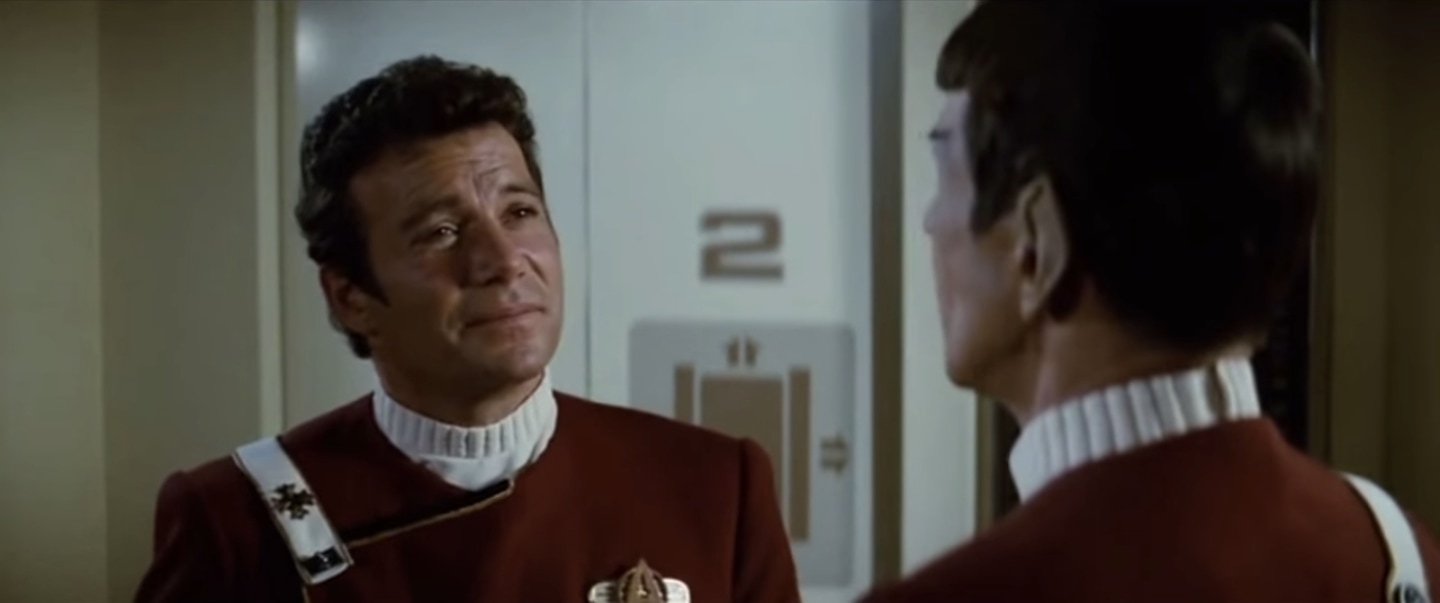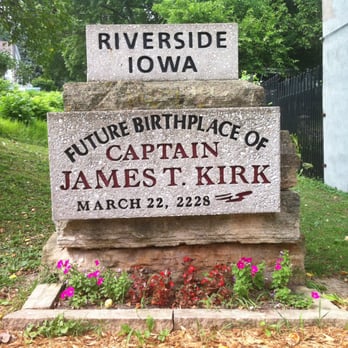This is a day to wish a Happy 86th Birthday to Wiliam Shatner and (probably not coincidentally) a happy future birthday to Captain James T. Kirk! What better time to share with you this exclusive excerpt from my book, The Gospel According to Star Trek: The Original Crew!
It turns out that there is a great deal more significance to this date than most people ever realize, as I discuss in these opening paragraphs from my chapter on Star Trek II. I'll be back at the end with some closing thoughts.
Enjoy!
It turns out that there is a great deal more significance to this date than most people ever realize, as I discuss in these opening paragraphs from my chapter on Star Trek II. I'll be back at the end with some closing thoughts.
Enjoy!
“How we deal with death is at least as important as how we deal with life.”
—Admiral James T. Kirk
—Admiral James T. Kirk
Star Trek II: The Wrath of Khan begins on March 22, 2285. While this is not stated explicitly in the film, when Star Trek historians Michael and Denise Okuda later officially established the Star Trek timeline, the year of this film was determined to be 2285.[1] Importantly, the film takes place on the occasion of Admiral James T. Kirk’s birthday, which is similarly established as March 22, probably because it coincides with actor William Shatner’s birth date.[2] In the Western Christian liturgical calendar,[3] Easter is a movable feast, occurring on a Sunday anywhere between March 22 and April 25.[4] March 22 is the least common date on which Easter can fall (a 0.483% likelihood), most recently occurring in 1818. Amazingly, the next time Easter will fall on March 22 will be in the year 2285.[5] Therefore, Star Trek II begins on Easter Sunday.
Further, it begins on the very next Easter Sunday to fall on the birthday of James Kirk and the only one that will do so during his (fictional) lifetime. This fact cannot possibly have been in the mind of anyone connected with the creation of Star Trek II, as these dates had not yet been established in 1982 and would not be established for more than decade. Even still, in Star Trek history, the fact remains that a film that begins on Easter Sunday is the first in a cycle of films concerning death, resurrection, and restoration, a trilogy that inaugurates one of the most visible and potent icons of pop culture—Spock—as a Christ figure.
In his audio commentary for Star Trek II, writer and director Nicholas Meyer says, “You get an idea and you say, ‘Oh my God, this is great,’ and you know it’s great, but you can’t say why. Other people will tell you why.”[6] Star Trek II is great—and I humbly suggest that I know at least one reason why: It tells the story of Jesus. In conjunction with its two following sequels, in perhaps the greatest unplanned trilogy in film history, it tells that story very well and in surprising detail. The fact that all of this is entirely unintentional is perhaps the most amazing part of the story, and may in fact indicate that something sacred is at work here.
(Excerpted from The Gospel According to Star Trek: The Original Crew with the permission of Wipf and Stock Publishers.)
As Christians draw closer to Easter, the season of Lent calls us to consider our own mortality and need for repentance, along with the significance of Christ's sacrifice. It's pretty great that, as Star Trek fans, we not only get to celebrate life with important birthdays during this time, but that we have a film like Star Trek II that so beautifully blends themes of mortality and rebirth, melancholy and joy. What a perfect Lenten meditation!
There's so much Christological beauty in this film. Read the rest of my analysis of Star Trek II: The Wrath of Khan in The Gospel According to Star Trek: The Original Crew!
There's so much Christological beauty in this film. Read the rest of my analysis of Star Trek II: The Wrath of Khan in The Gospel According to Star Trek: The Original Crew!



 RSS Feed
RSS Feed
